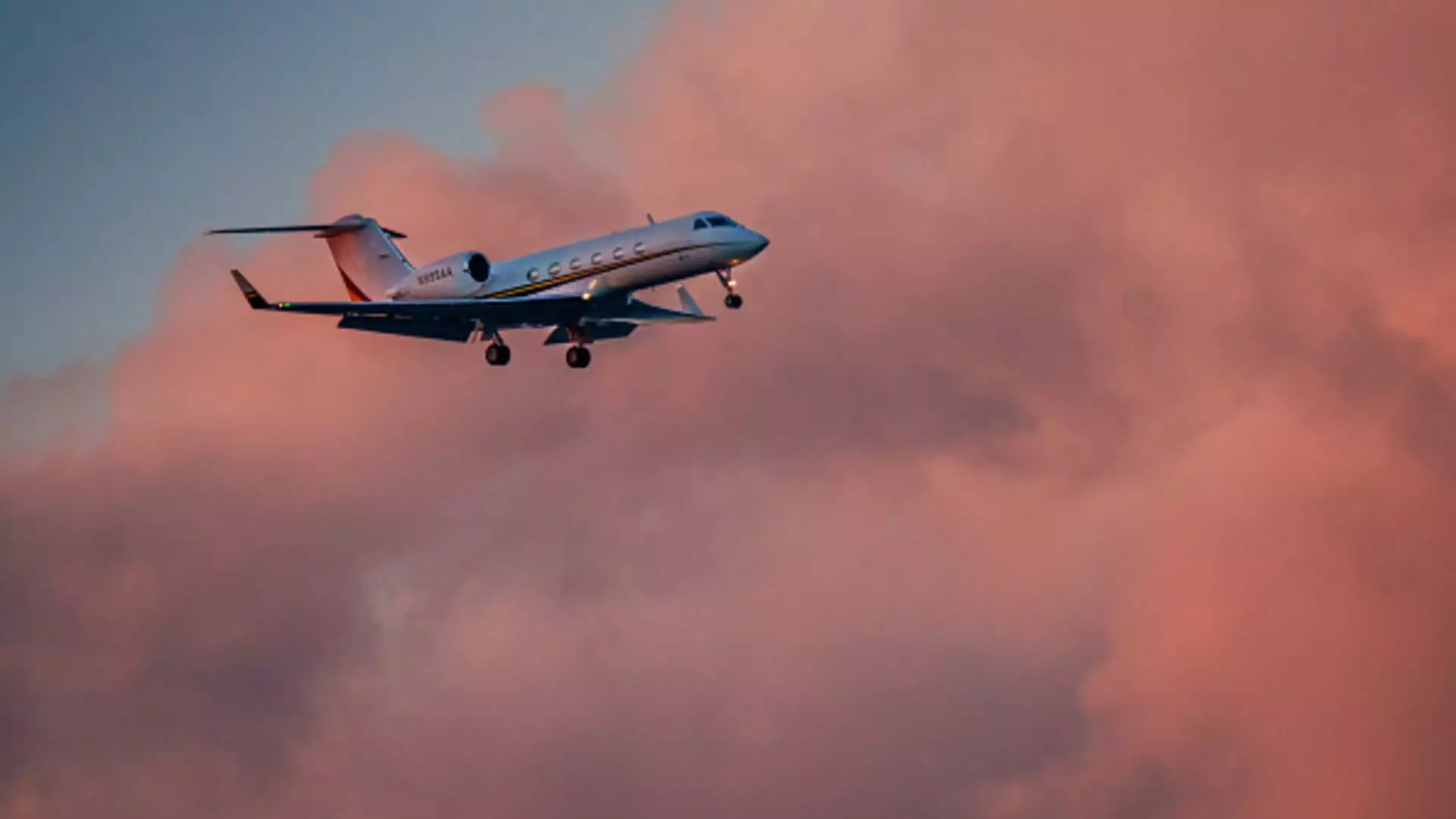The private jet industry is currently experiencing a significant decline, with private jet flights falling by 15% in the first half of the year compared to their peak in 2022. This decline is attributed to a combination of factors, including waning demand and increased competition in the high-end travel market. Despite a temporary spike in private jet flights during the Summer Olympics, the industry as a whole continues to face challenges in maintaining previous levels of activity. Data from Argus International shows that private jet charter flights dropped to 610,000 in the first half of the year, down from 645,000 last year and 716,000 in 2022.
The ongoing correction in the private aviation sector can be largely traced back to the impact of the Covid-19 pandemic. In 2020, private jets emerged as a safer and more exclusive mode of travel as airports and commercial airlines shut down. This led to a surge in demand from wealthy travelers who previously hesitated to fly private due to cost and environmental concerns. The flood of liquidity from government stimulus, record low interest rates, and a booming stock market further fueled the demand for private jet charter services, resulting in a rush by companies to expand their fleets and services.
Challenges and Consequences
However, the rapid growth and expansion of the private jet industry during the post-Covid era have now set the stage for a potential shakeout. Companies like Wheels Up, which went public in 2021, have struggled to maintain profitability and are facing significant financial challenges. Jet It, a major private jet operator, shut down last year, highlighting the fragility of some players in the market. Smaller charter operators with limited fleets are particularly vulnerable as demand contracts and planes sit idle.
Changing Consumer Behavior
One notable shift in consumer behavior is the trend of mixing commercial and private flights for city-to-city trips. Many frequent private jet fliers have started using commercial airlines for certain routes, particularly as prices for private flights have increased by 20% since 2019. The pressure to control costs and the desire to optimize travel budgets have contributed to this change in behavior among high-net-worth individuals.
While the private jet industry is facing a period of consolidation and retrenchment, there are signs of a more balanced equilibrium emerging. The decrease in demand has led to a softening of prices for private jet services, with a growing number of unsold planes available in the market. Industry experts believe that this cooling down period is necessary for the industry to reset and establish a more sustainable long-term growth trajectory. Companies like NetJets, which offer fractional ownership models, are seeing increased interest from consumers looking for more cost-effective and reliable private aviation solutions.
The downturn in the private jet industry reflects a broader trend of market correction and maturation following a period of rapid expansion. As the industry adapts to changing consumer preferences and economic conditions, it is likely to undergo further transformations in the coming years. The key for companies in this sector will be to innovate, streamline operations, and focus on delivering value to customers in order to thrive in a more competitive and challenging environment.

